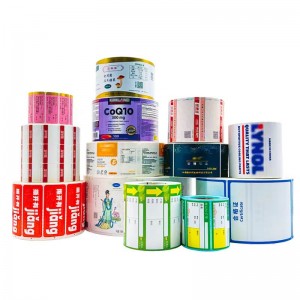In the field of food packaging, labels are not only the carrier of product information, but also an important line of defense for food safety. Choosing compliant label materials must not only meet printing requirements, but also meet the safety standards of food contact materials. This article will analyze the selection points of self-adhesive labels and thermal paper for the food industry.
1. Compliance requirements for food labels
Food safety certification: must pass FDA, EU 10/2011 and other food contact material certification
Environmental resistance: must withstand refrigeration, freezing or high temperature sterilization and other processing conditions
Information integrity: ensure that the text and barcode are clear and readable within the shelf life
2. Material selection scheme for self-adhesive labels
Food-grade self-adhesive labels usually adopt a three-layer structure:
Surface material: PE/PP film (water-resistant and oil-resistant) or special food-grade paper is preferred
Glue: Use permanent acrylic glue or removable glue (need to pass migration test)
Base paper: Glassine release paper (easy to tear and environmentally friendly)
Special scenario solutions:
Frozen food: use low-temperature glue that can withstand -40℃
Fat and oily foods: use film materials that prevent ink penetration
Transparent packaging: use transparent BOPP surface materials to maintain beauty
3. Food-grade applications of thermal paper
In cash register labels, fresh food price tags and other scenarios:
BPA/BPS-free thermal coatings must be used
It is recommended to use thermal paper with waterproof Top coating in the fresh food area
Thermal cash register receipts should avoid direct contact with food
4. Industry best practices
Baked foods: use high-temperature resistant matte self-adhesive labels (resistant to 120°C baking)
Beverage bottles: use condensation-resistant synthetic paper labels
Takeaway packaging: use removable glue for easy tearing by consumers
Post time: Jul-16-2025


